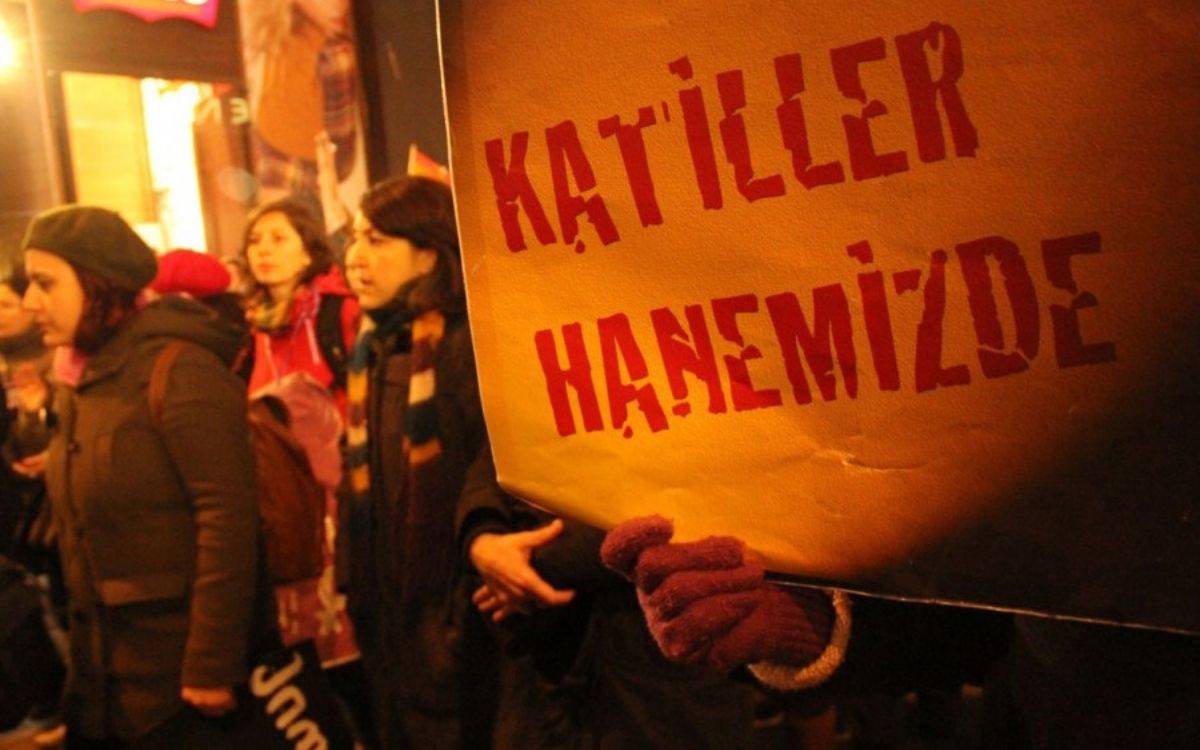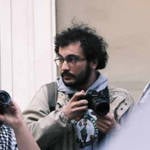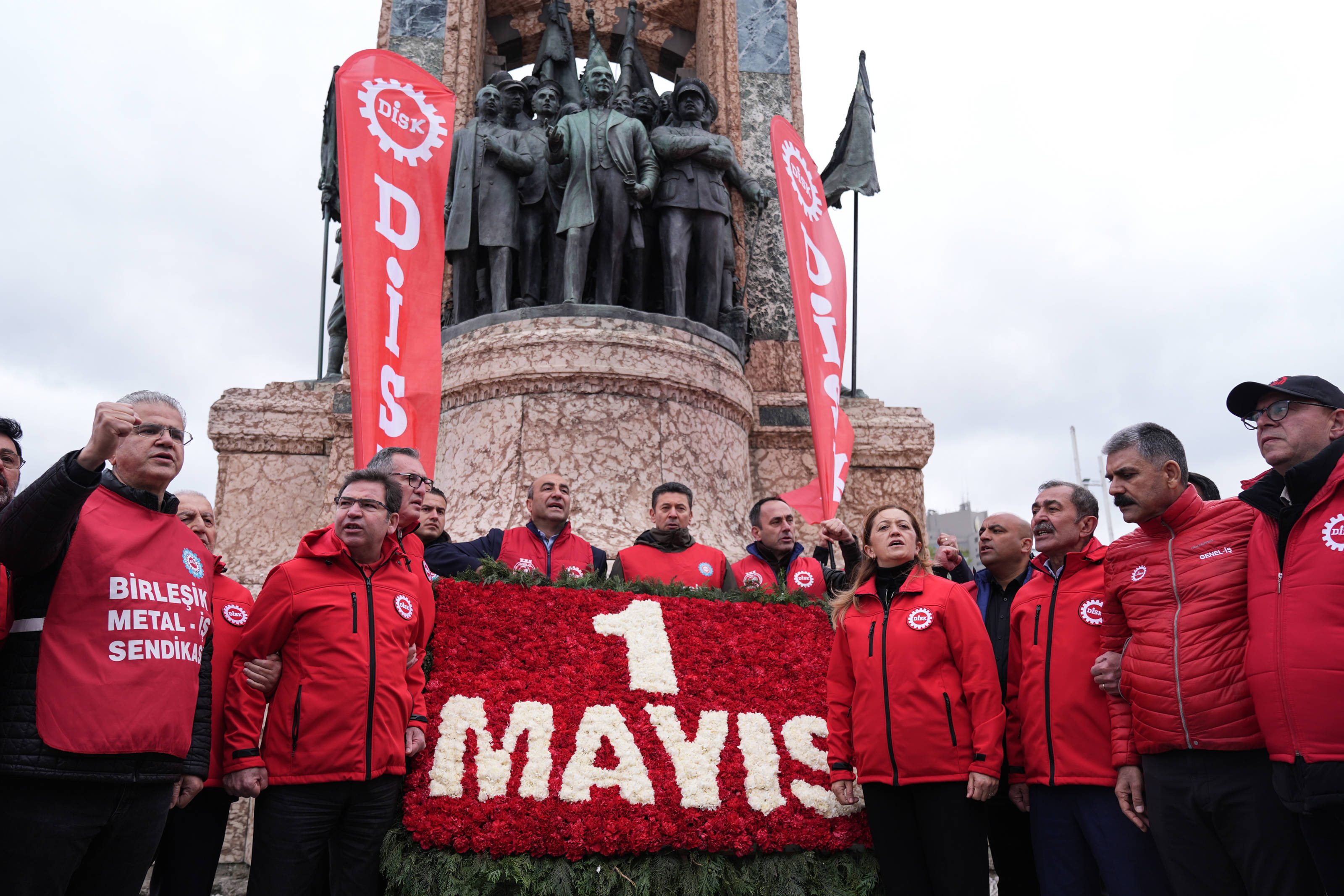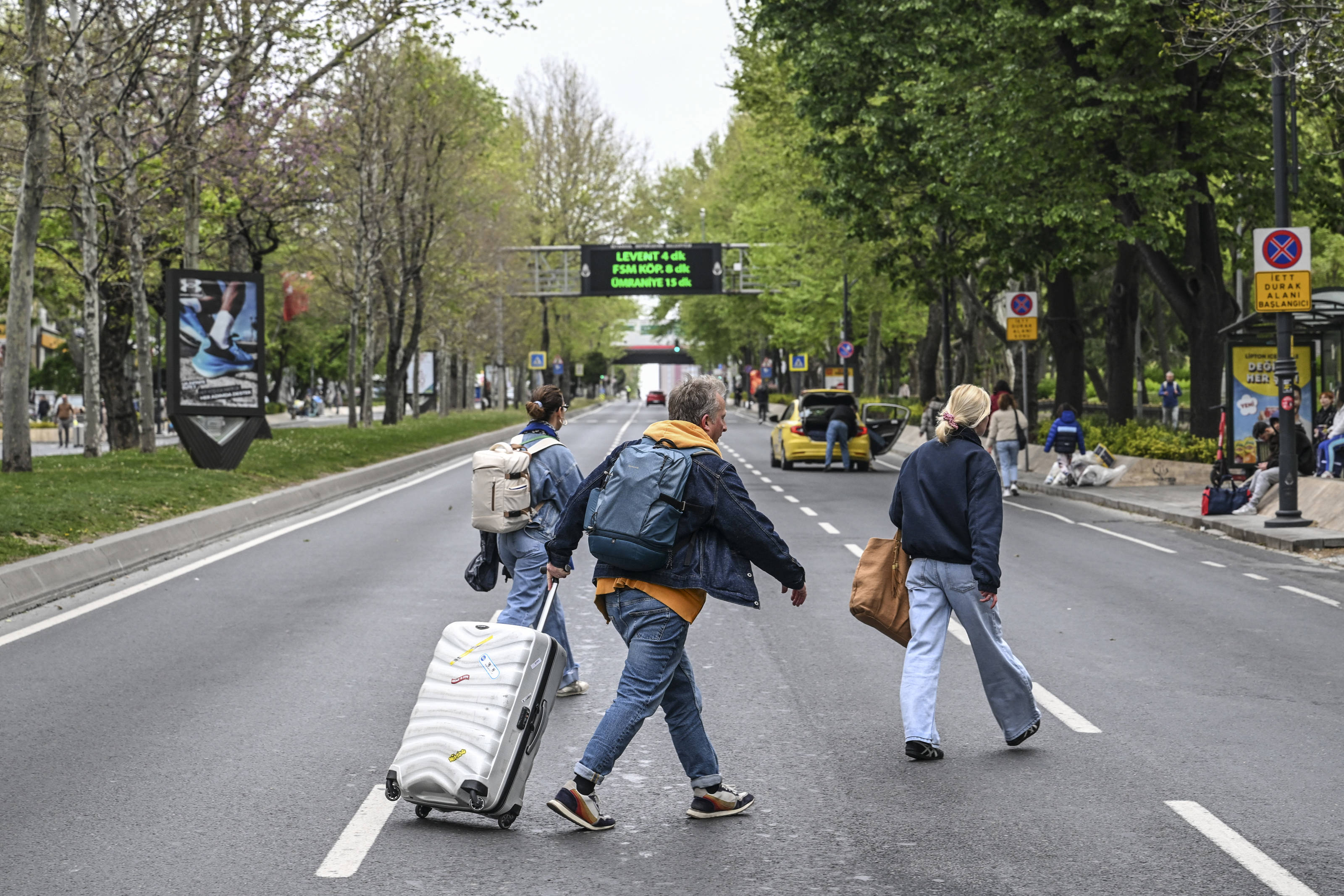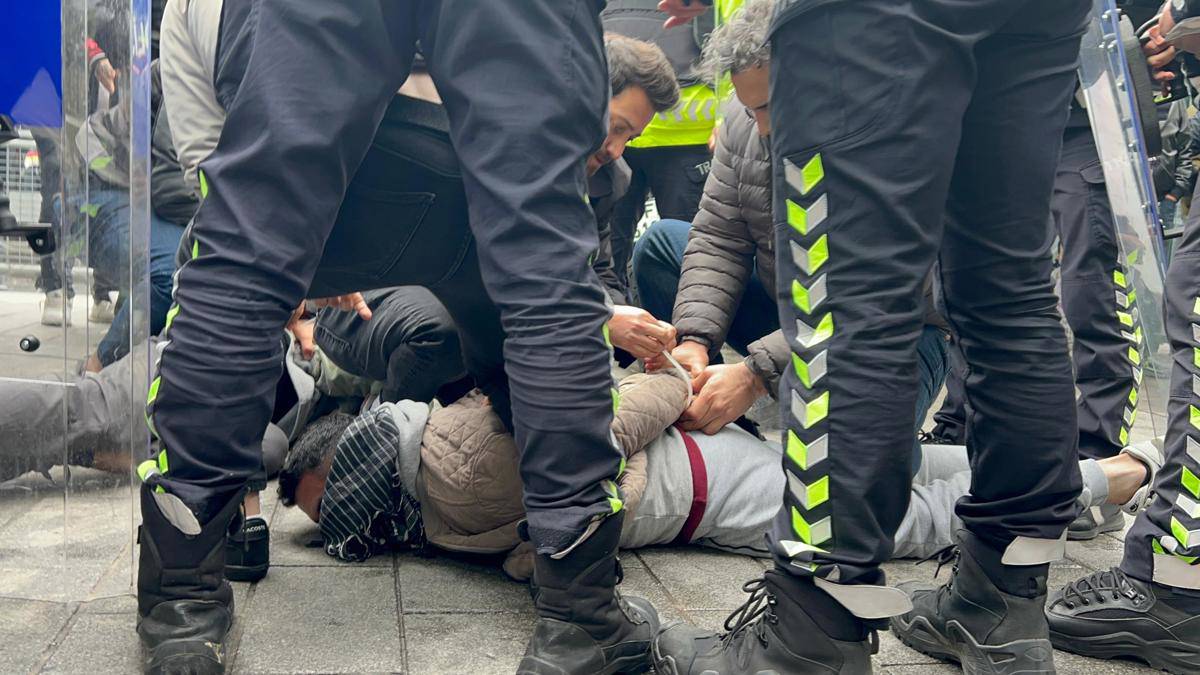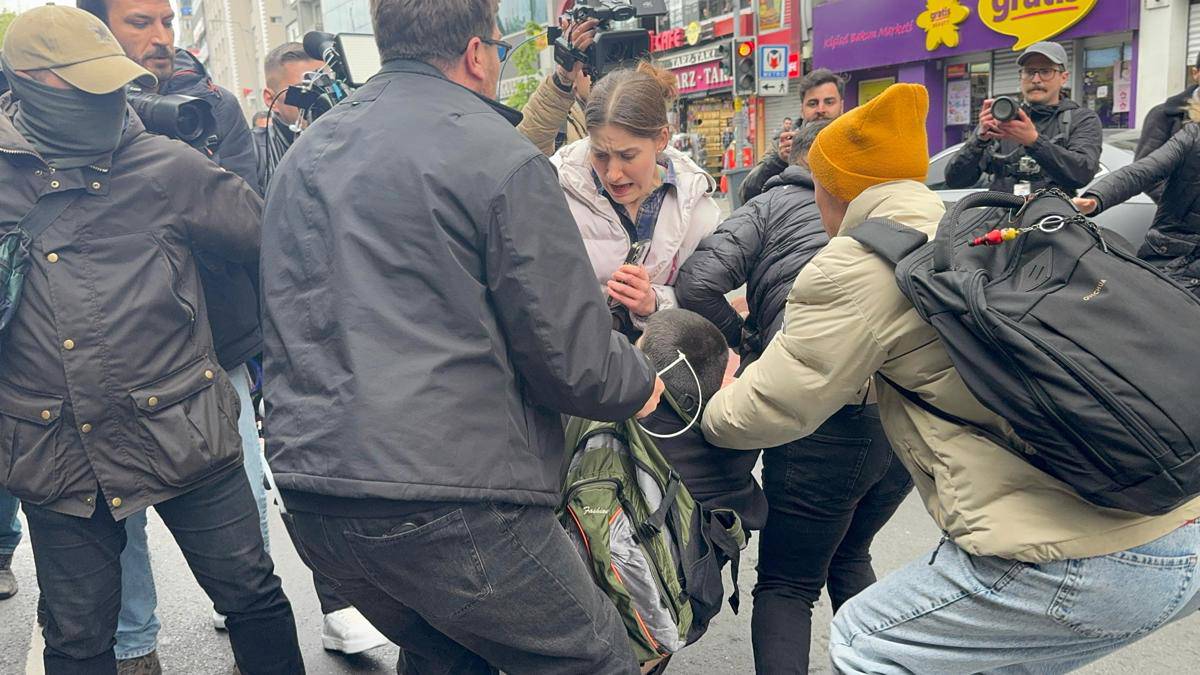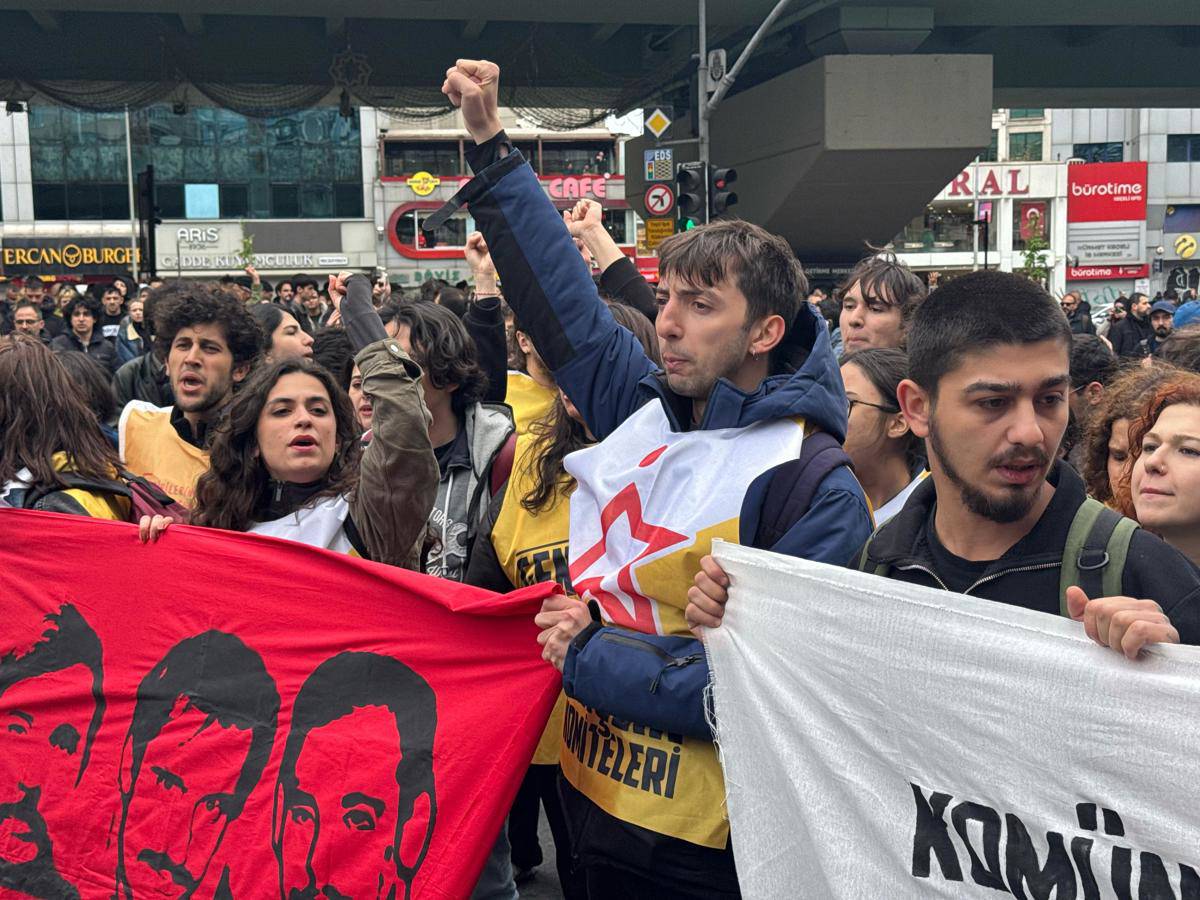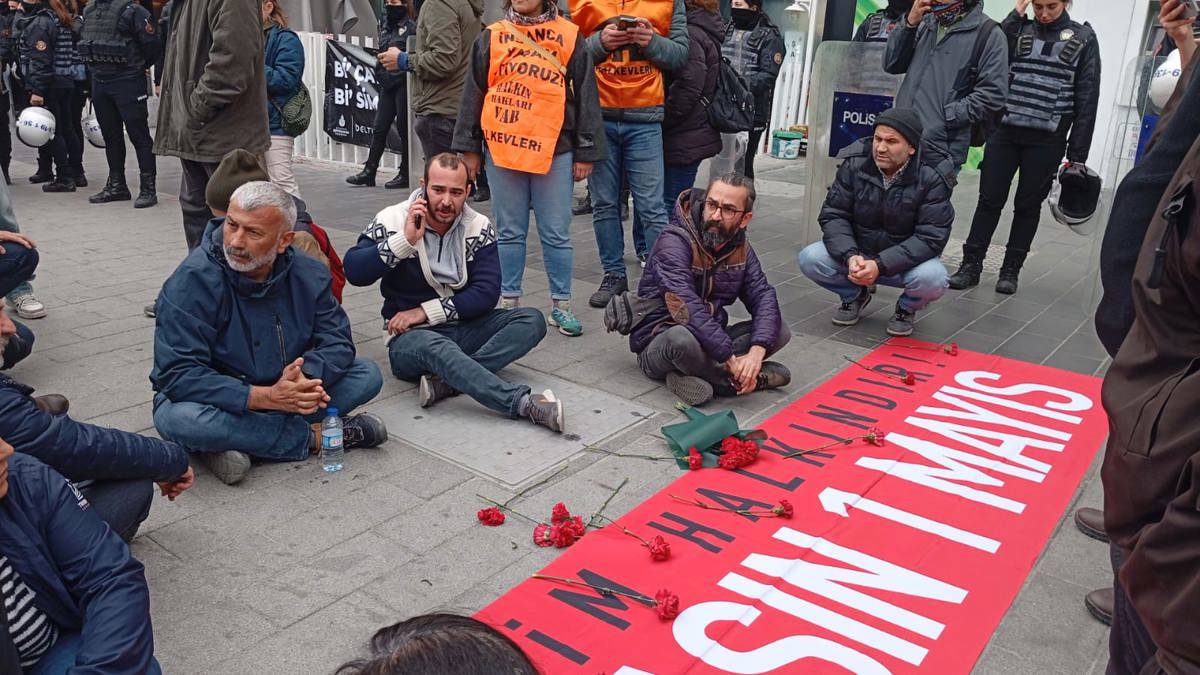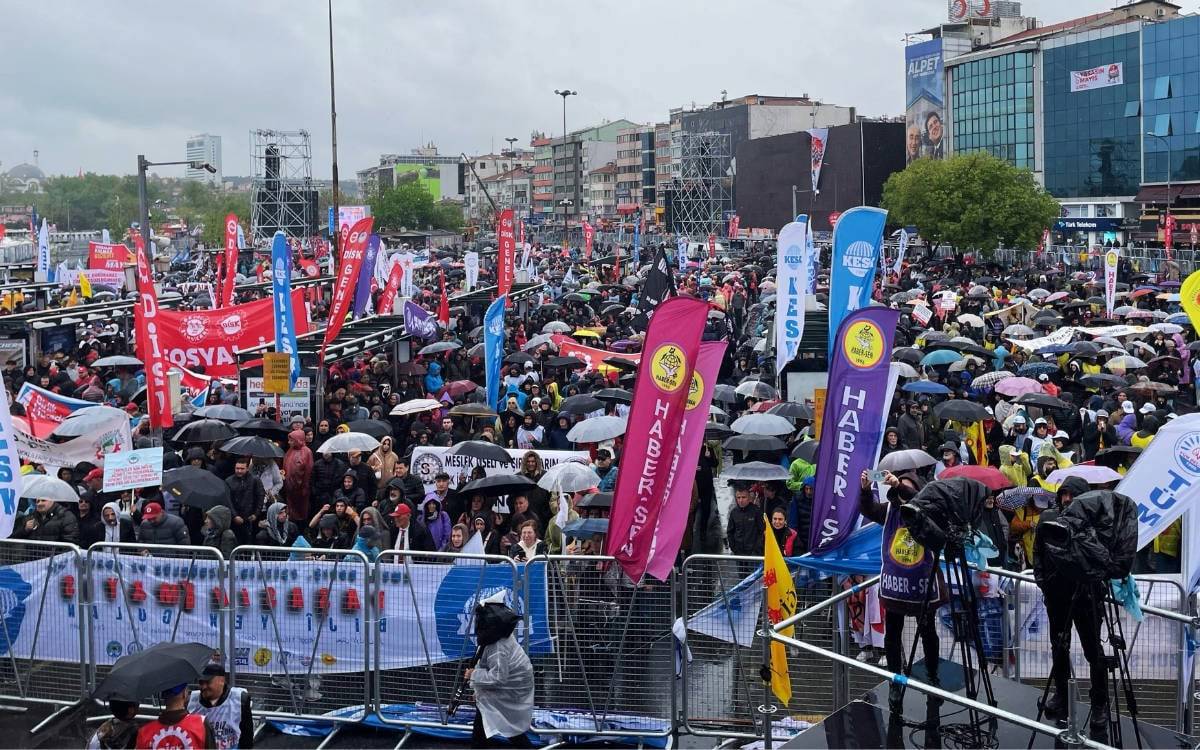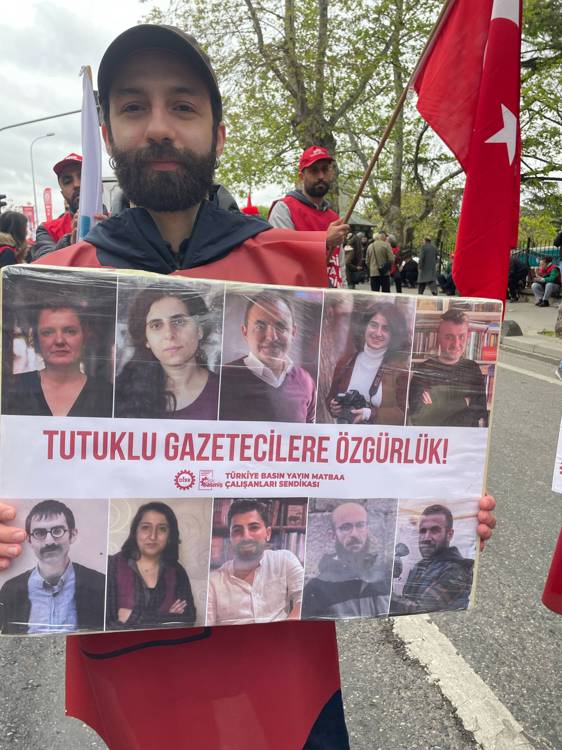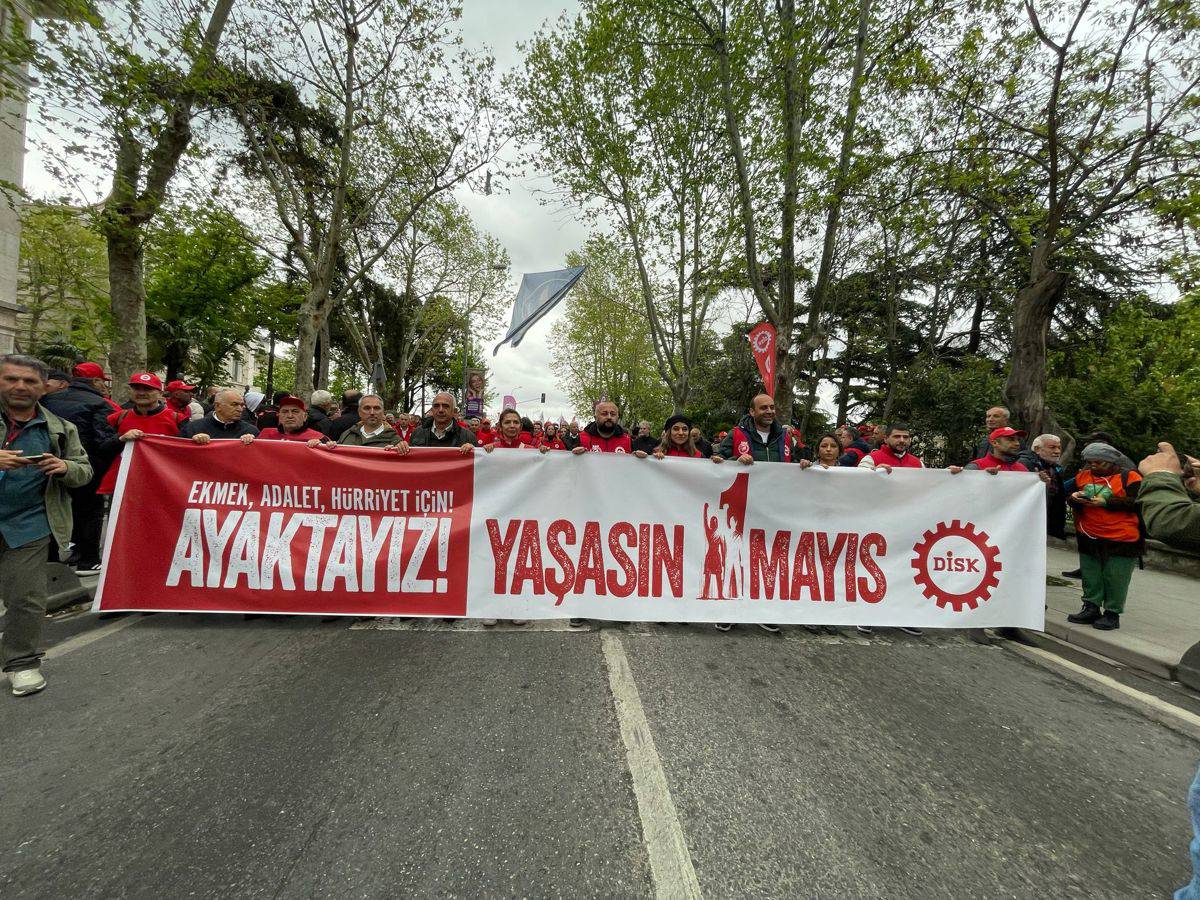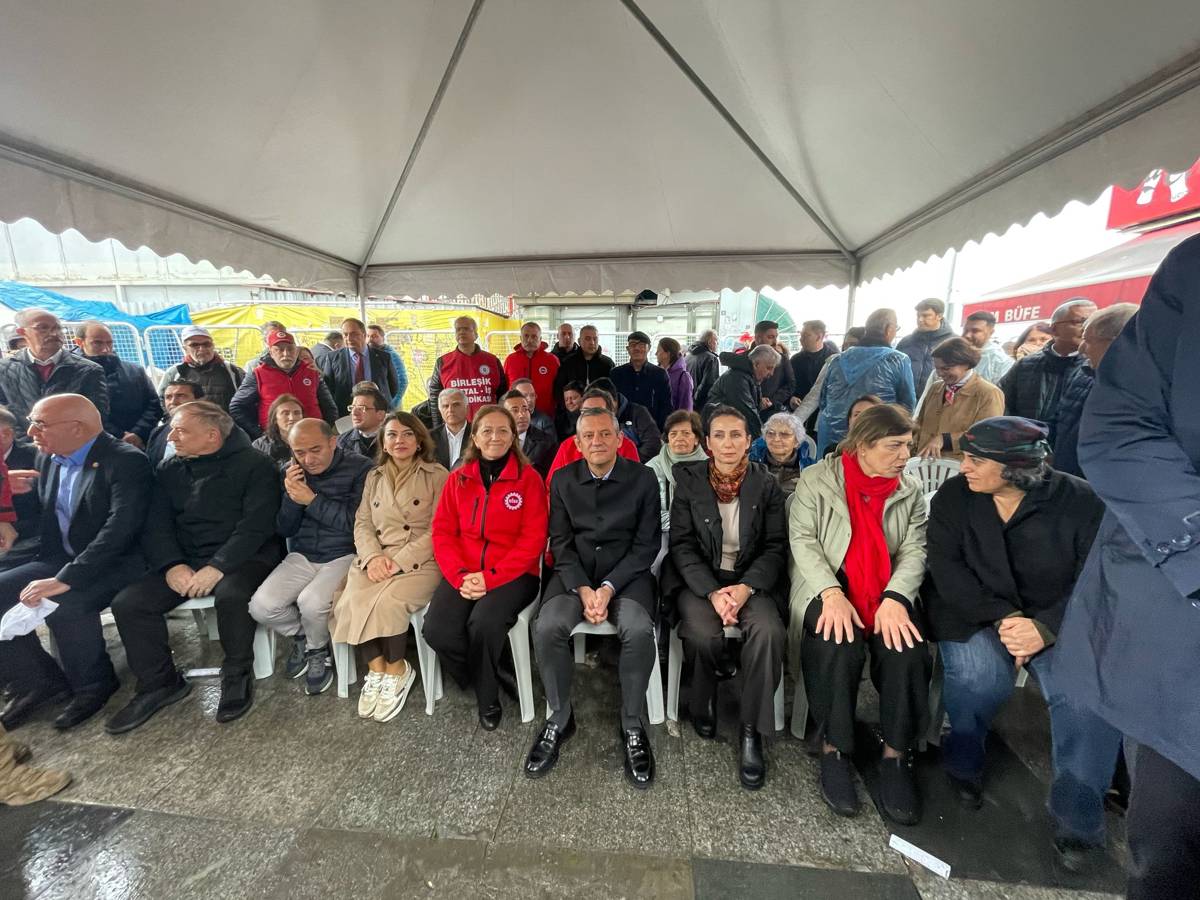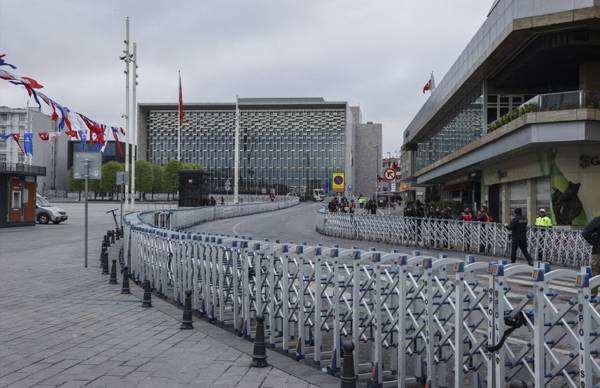Two sides of May Day in İstanbul: Police crackdown and celebrations under control

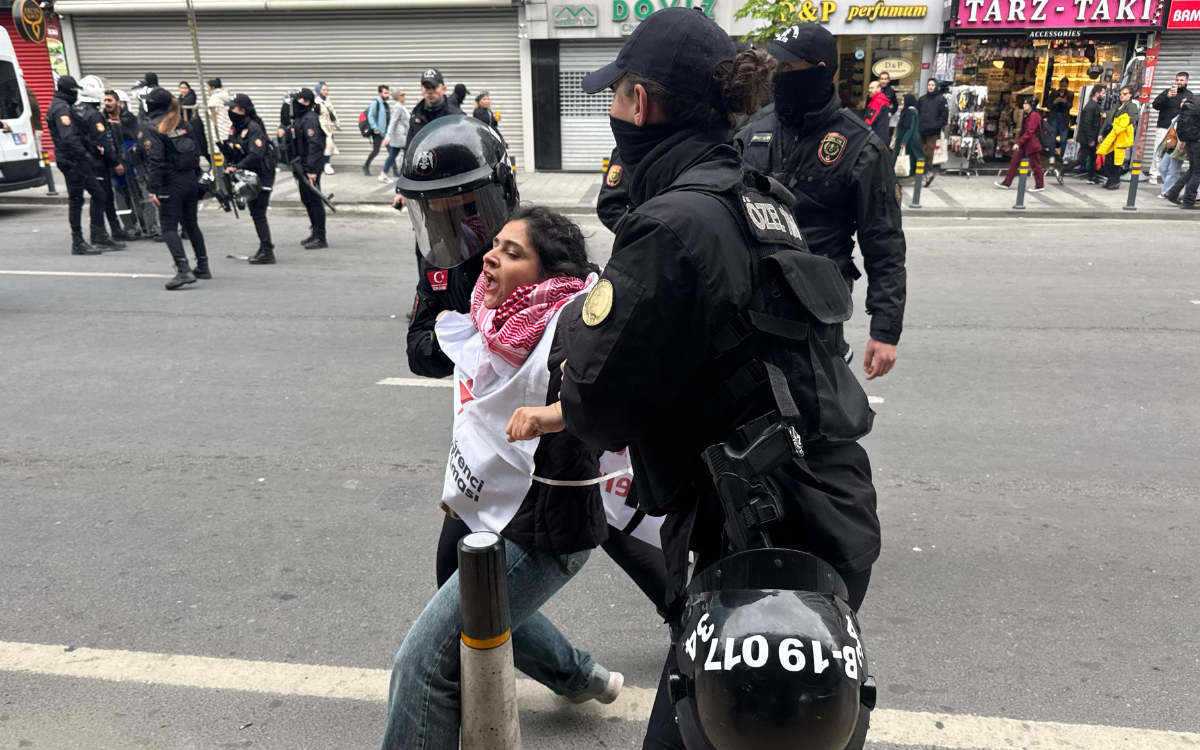
On May Day, thousands of people filled the streets of İstanbul in a powerful show of solidarity and protest, but the city was split in two.
On one side of the Bosphorus, in Taksim, a symbolically important venue for the labor movement, heavily guarded streets and police barricades met leftist demonstrators who attempted to march toward the symbolic square, resulting in widespread detentions and scenes of confrontation.
On the other side, Kadıköy on the city's Asian shores, a government-approved gathering unfolded in a markedly different atmosphere, orderly and celebratory, with trade unions, professional associations, and opposition party members rallying under banners calling for labor rights, democracy, and justice.
Heavy crackdown on Taksim marchers
In the early hours of the day, union representatives laid wreaths at the Republic Monument in Taksim Square to commemorate those who lost their lives during the 1977 Bloody May Day. These events are the only May Day commemorations permitted in the square in recent years.
Authorities imposed unprecedented road closures and public transport restrictions to prevent access to Taksim. The security perimeter extended far beyond the square itself, with key roads in Şişli and Fatih districts also sealed off.
Metro stations in and around Taksim, including those located before and after the square, were shut down, effectively paralyzing movement across a large part of the city and severely limiting access for those attempting to join the demonstrations.
In defiance of government restrictions, leftist groups that came together under the May 1 Taksim Organizing Committee gathered early in the day in the Şişli and Mecidiyeköy neighborhoods, calling on the public to “reclaim Taksim.” The square has long been a symbolic site for the labor movement.
Clashes began around 10.30 am local time (GMT+3) as various groups began marching through side streets toward Taksim, meeting with a firm police response. The İstanbul branch of the Progressive Lawyers Association (ÇHD) reported that more than 400 people had been taken into custody by 3.20 pm, including at least nine lawyers.
Among those detained were members of socialist groups, youth organizations, and union representatives.
#1Mayıs2025 | Şişli’den Taksim'e yürümek isteyen DİSK/Enerji-Sen üyeleri gözaltına alındı.
— bianet (@bianet_org) May 1, 2025
📹 Video: @alidnc4 pic.twitter.com/NIIxFufnK0
“We are determined. We will not let the resistance of the people and youth be crushed,” the organizing committee stated in a social media post. “We continue to resist and march. The pressures and detentions could not stop the resistance of the people.”
Notable detentions included Murat Çepni, co-chair of the Socialist Party of the Oppressed (ESP), and members of the Progressive Lawyers Association (ÇHD), such as Rojhat Tunç and Saruhan Efe Kadaifçi. Police also intervened against journalists covering the events, including bianet editor Ayşegül Başar.
“Everyone should be ashamed to be behind this barrier,” shouted one protester in Şişli. Opposition politicians, including Republican People’s Party (CHP) İstanbul chair Özgür Çelik and MP Mahmut Tanal, were also present at the scene and condemned the restrictions.
Taksim’s importance
Taksim Square and the adjacent İstiklal Avenue, among İstanbul’s main tourist hubs, have long been central to social movements in Turkey, leftist and otherwise, and a flashpoint for May Day tensions.
In 1977, during a massive May Day rally in Taksim Square, unidentified gunmen opened fire on the crowd, triggering a stampede that left 34 people dead. The event became known as “Bloody May Day.”
After the 1980 military coup, authorities banned May Day celebrations in Taksim, sparking annual confrontations between police and protesters attempting to reclaim the square. A brief period of official tolerance followed under the ruling Justice and Development Party (AKP), which legalized rallies in Taksim from 2010 to 2012.
However, the square was once again closed off in subsequent years. Currently, only small delegations are permitted to enter the square to lay carnations in memory of those killed in 1977.
Despite the longstanding ban, this year’s call to march on Taksim came from roughly 40 groups, including trade unions and socialist organizations. In the days leading up to May Day, police carried out preemptive raids, detaining several members of the organizing committee.
The permitted rally
On the Asian side of the city, thousands gathered in Kadıköy for an authorized May Day celebration organized by leading labor confederations such as the Confederation of Progressive Trade Unions of Turkey (DİSK), the Confederation of Public Employees’ Trade Unions (KESK), the Union of Chambers of Turkish Engineers and Architects (TMMOB), and the Turkish Medical Association (TTB).
Marchers convened near Numune Hospital and Söğütlüçeşme before proceeding to Rıhtım Square, where a rally was held under the slogan “We will win for labor, peace, democracy, and justice.”
While the event was peaceful, security was tight. Police controlled entry points, conducted body searches, and inspected banners. A humorous protest sign by CHP youth members, “You can’t run a state with turnips and pickles," was barred from entry. The banner referred to the ongoing corruption investigation against the now-suspended İstanbul Mayor Ekrem İmamoğlu, who is a member of the CHP.
CHP’s Kadıköy district chair Ali Narin called the ban “a reflection of the regime of repression,” adding, “This restriction on our young people’s satirical expression is unacceptable.”
Labor leaders and local officials, including DİSK Chair Arzu Çerkezoğlu and the CHP mayor of Üsküdar, led the march. Demonstrators chanted slogans such as “Union, despite everything,” and “AKP to the grave, people to power.”
The rally also emphasized solidarity with imprisoned journalists and political figures. Signs carried by workers read “Don’t touch my severance pay” and “Dignified life, secure jobs.” The event began with a moment of silence and a performance by the Ruhi Su Friends Choir.
Manifesto
During the rally, representatives of the organizing unions read a joint “May Day 2025 Manifesto,” declaring a vision for a fairer, more democratic Turkey. The statement outlined demands including secure employment, protection of union rights, gender equality, and freedom of expression.
“A country where no one is a second-class citizen… where journalists, artists, and political opponents are not jailed, is possible,” the manifesto read. “There is no salvation alone—either we all unite, or none of us succeed.” (EMK/AB/AD/VK)
'Nowhere feels safe anyway': İstanbulites confused about earthquake assembly planning
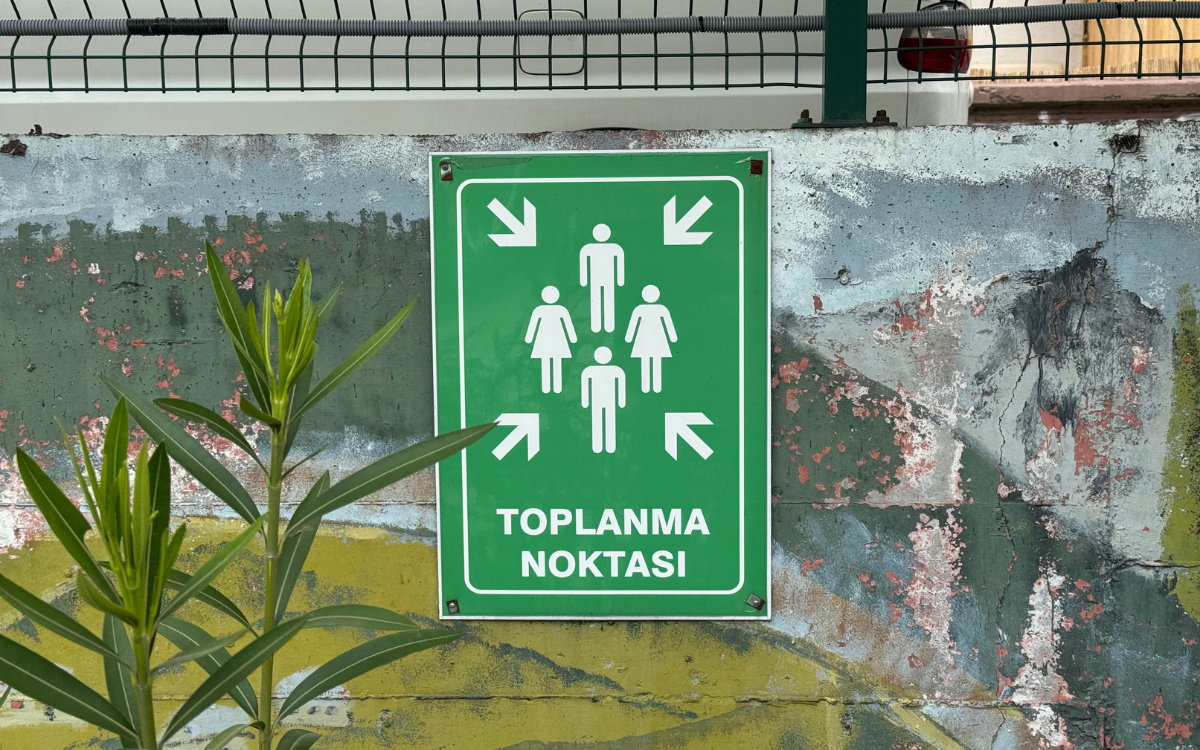
Preliminary probe into police violence during İmamoğlu protests
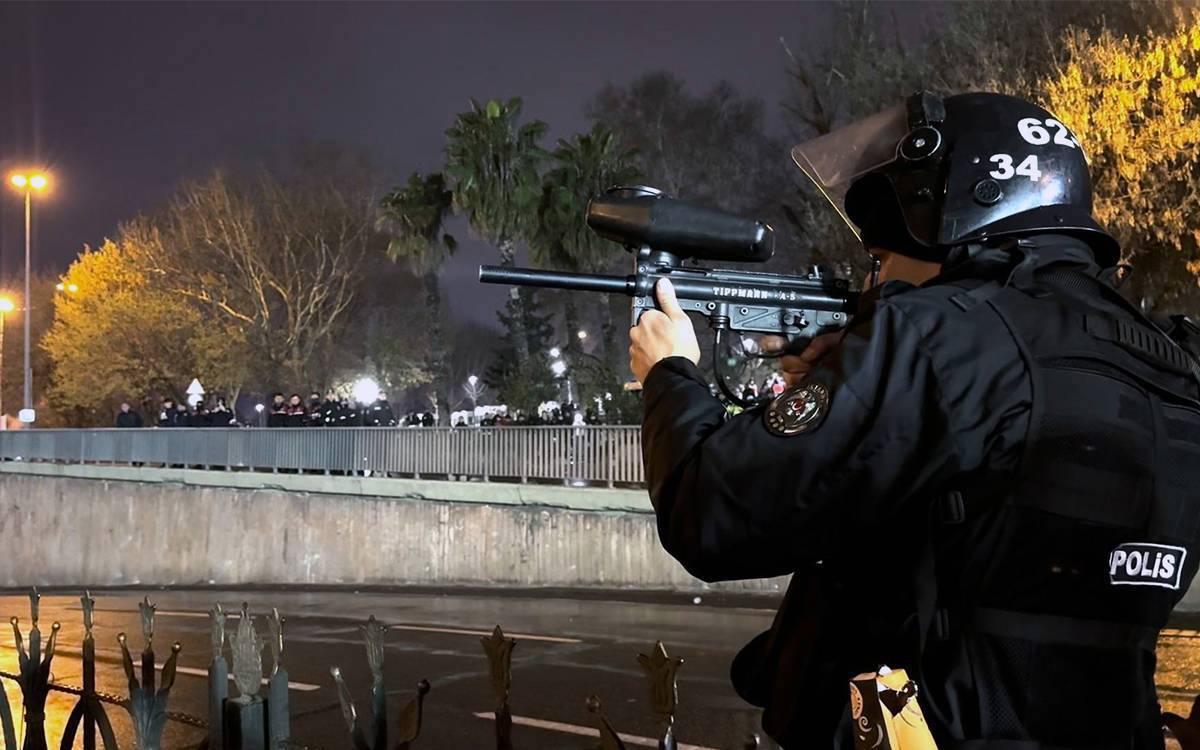
Astrologist released after two months in detention over social media post on Bahçeli’s health

Over 100 youths released after mass arrests during İmamoğlu protests
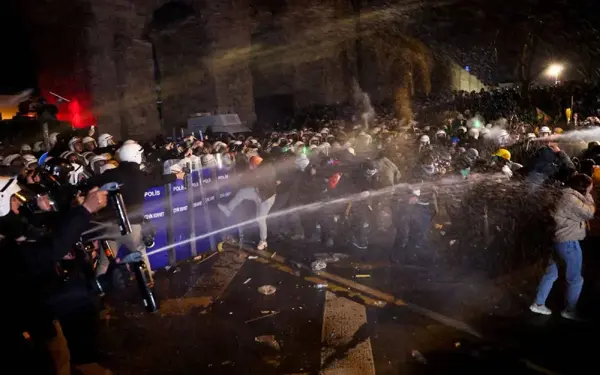
MALE VIOLENCE MONITORING REPORT MARCH 2025
Men killed 24 women in March
